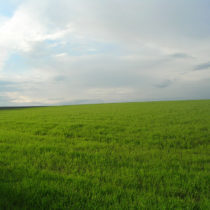Landscape Architecture for Landscape Architects › Forums › GENERAL DISCUSSION › Sustainable Sites
- This topic has 1 reply, 6 voices, and was last updated 8 years, 9 months ago by
 Alan Ray, RLA.
Alan Ray, RLA.
-
AuthorPosts
-
October 2, 2015 at 5:51 pm #151711
 Mark Di LucidoParticipant
Mark Di LucidoParticipantHas anybody been able to sort out USGBC vs. Sustainable Sites Initiative vs. GBCI?
October 11, 2015 at 11:14 pm #151738 Alan Ray, RLAParticipant
Alan Ray, RLAParticipantI’ve been in professional practice 40 years and don’t have a clue what those acronyms mean….
If you are a licensed LA, why do you need those other things? I think they are only to make money and give those without credentials something to put behind their names while trying to encroach on the real pros…..
kind of like leed. So, why do you need acknowledgement from them?
Just a biased opinion.
October 12, 2015 at 3:50 pm #151737 Mark Di LucidoParticipant
Mark Di LucidoParticipantHi Alan,
I detect some latent curmudgeonly tendencies in your response. But that’s OK—takes one to know one! I also agree 100% with your viewpoint. Used to be just LEED, then Sustainable Sites came into vogue (apparently subsumed by LEED), then it was/is Green Globes (green industry’s version of the Golden Globes?). So I’m wondering what the latest BS marketing strategy du jour is?
October 12, 2015 at 11:55 pm #151736 Alan Ray, RLAParticipant
Alan Ray, RLAParticipanthahaha….I resemble that remark!
October 13, 2015 at 10:26 pm #151735 Linda AshbyParticipant
Linda AshbyParticipantSustainable Sites Initiative has not been subsumed by LEED. GBCI is the third-party administrator for both LEED and SSI, which are independent rating systems intended to make schools, buildings, landscapes, communities healthier, happier places for the long term. Many do not consider them “BS marketing strategies”, it is a shame that you do.
October 14, 2015 at 10:36 pm #151734 Linda AshbyParticipant
Linda AshbyParticipantPerhaps, perhaps not. But landscape architects are not the only ones who work in the built environment. At the very least maybe you can agree that SSI – and LEED, etc – raise awareness of critical issues and landscape-based solutions to a wider audience of professionals and CLIENTS? Can’t you agree that systems and plaques entice more property owners and municipalities to invest in and implement more sustainable landscape solutions? As to whether or not the systems are arbitrary, that is why more dollars need to be invested in landscape research. At least SSI encourages long-term monitoring, which I think is its greatest contribution. And that is something landscape architects typically do not do.
October 14, 2015 at 10:50 pm #151733 Linda AshbyParticipant
Linda AshbyParticipantAlan and Mark, what does “trying to encroach on the real pros” mean? And to whom are you referring, “those without credentials something to put behind their names”?
October 14, 2015 at 11:13 pm #151732 Alan Ray, RLAParticipant
Alan Ray, RLAParticipantit means whatever you think it means….by the way, where is your registration Linda?
Or, are you a another non landscape architect on here telling us what to think?
That would be one definition of encroaching….
October 14, 2015 at 11:25 pm #151731 Linda AshbyParticipant
Linda AshbyParticipantI am not “another non landscape architect,” and I am not “telling you what to think.” Beyond that, let’s just stick to the issues.
October 14, 2015 at 11:57 pm #151730 Alan Ray, RLAParticipant
Alan Ray, RLAParticipantlook, it’s ok…we were all young and impressionable at one time…
so are you a landscape architect?
October 15, 2015 at 3:34 pm #151729 Linda AshbyParticipant
Linda AshbyParticipantAgain, let’s stick to the issues. No one person’s CV bares significance here. Whether I’m a PLA licensed in three states who believes good outcomes are possible from SSI, a PE considering going back to school for an MLA, or an emerging LA professional who is working toward licensure – what does it matter? I was merely wondering who is encroaching on the real pros, how they’re doing it, and what that even meant.
October 15, 2015 at 4:13 pm #151728 Linda AshbyParticipant
Linda AshbyParticipantI’m sorry to hear this. LEED projects *should* follow an integrated project delivery method, in which the full team works together from day 1. Being brought in for only six weeks, and being told how to design rather than you contributing as an equal collaborator, should not have happened, so the process you experienced was flawed. It was not true to what LEED preaches, and it sounds like the LA functioned more as a sub to the architect as might be the case even without a sustainability-driven rating system. Luckily that is not always the case. And of course, not every project or client aspires to attain rating system certification.
October 16, 2015 at 3:08 am #151727 idaParticipant
idaParticipantnicely put.
October 16, 2015 at 10:29 pm #151726 Mark Di LucidoParticipant
Mark Di LucidoParticipantOK everybody, play nice. Was not my intent to cast any aspersions with my original post but I do believe LEED primarily benefits the USGBC and is only marginally effective in doing what it’s supposed to do—save energy. And I believe it’s overly complicated otherwise it wouldn’t need accredited professionals to rate sites and buildings. Overly complicated plus required intimate/technical knowledge plus required credentials means it’s usually limited to state and large private developers who can afford accredited professionals and include it mainly for its PR effect (read: shouldn’t it be simpler so the average Jill who doesn’t work in design and construction can do it for her small building and home? After all, it’s the billions of small carbon footprints that will make the difference).
So does LEED make greener buildings or greener wallets? According to USGBC’s financial report from 2008:
- $14 million per year in accreditation registration & conference fees
- $10 million per year in publications (study aids)
- $16 million per year in building certification fees
Yes, LEED has somewhat raised awareness of energy conservation in buildings but really, why not employ the technology without the certification? Because then LEED doesn’t earn that $40 plus million a year, that’s why. Are LEED buildings more energy efficient than non-LEED buildings that were designed with energy conservation in mind?—no but they get to hoist the ‘I’m green’ trophy. And yes, I’m going to mention Al Gore’s house because it considers the bigger question, What’s the point of having a 4,000 square foot LEED certified house that still uses 20 times the natural gas and 10 times the electricity of the average U.S. home? Are the excesses of McMansions OK if they’re LEED certified? Greenwashing anyone?
On to landscape architecture. As a matter of course, our efforts already sequester carbon; treat storm water, conserve soil & water, reduce urban heat island effects, advocate ecosystem services; reduce energy usage; filter air and water. So we’re already walking the talk. At least most of us are, unlike two LEED AP LAs I used to work with who lived together but drove two separate vehicles from their home to our office 15 miles away
October 17, 2015 at 10:31 pm #151725 idaParticipant
idaParticipantI’m not sure why we’re all picking on Linda. She said nothing offensive IMHO. She offered useful information about LEED. And whether or not she is an LA or not has no meaning. This forum should be about sharing different ideas, not about showing how big of a stick you carry.
-
AuthorPosts
- You must be logged in to reply to this topic.

